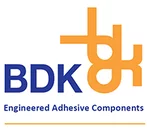A cleanroom is a controlled environment with stringent regulations governing the levels of pollutants. These spaces are designed to maintain optimal conditions for the manufacturing process of sensitive products, such as medical devices. The medical industry demands unparalleled precision and hygiene. Cleanrooms ensure that medical devices are manufactured in a sterile setting, minimising the risk of contamination and enhancing product safety.
How Does a Cleanroom Work?
Cleanrooms operate on the principles of controlled air flow and filtrations, using High-Efficiency Particulate Air (HEPA) filters. HEPA filters are comprised of thousands of fine fibres to capture close to 100% of particles in the air that are 0.3 microns or smaller. With constant monitoring, medical manufacturers make sure the air is always sterile. At BDK, we undertake daily pressure checks to ensure the HEPA filters are operating efficiently and monthly Environmental Monitoring checks to assess the bio-burden.
Cleanroom Classifications
The cleanroom classification system provides a standardised framework for evaluating and sustaining cleanliness within these controlled environments. They are classified according to number and size of particles permitted per volume of air.
Maximum concentration limits (particles/m3 of air for
particles equal to and larger than the sizes listed below)
| Class | FED STD 209E Equivalent | 0.1 micron | 0.2 micron | 0.3 micron | 0.5 micron | 1 micron | 5 micron |
| ISO 1 | 10 | 2 | |||||
| ISO 2 | 100 | 24 | 10 | 4 | |||
| ISO 3 | 1 | 1,000 | 237 | 102 | 35 | 8 | |
| ISO 4 | 10 | 10,000 | 2,370 | 1,020 | 352 | 83 | |
| ISO 5 | 100 | 100,000 | 23,700 | 10,200 | 3,520 | 832 | 29 |
| ISO 6 | 1,000 | 1,000,000 | 237,000 | 102,000 | 35,200 | 8,320 | 293 |
| ISO 7 | 10,000 | 352,000 | 83,200 | 2,930 | |||
| ISO 8 | 100,000 | 3,520,000 | 832,000 | 29,300 | |||
| ISO 9 | 8,320,000 | 293,000 |
The European standard for cleanroom classification is referred to as “Classification of Air Cleanliness” or BS EN ISO 14644-1:2015. At BDK, we operate several class 7 (class 10,000) cleanroom manufacturing facilities which are bio-burden controlled to ensure compliance with BS EN ISO 14644.
Our Cleanroom Manufacturing Process
The BDK team undergoes training on cleanroom protocols beforehand and rigorous gowning procedures are implemented to ensure they are properly attired to minimise risk of contamination. All materials and components entering the cleanroom are also thoroughly inspected to minimise this risk.
Designated entry and exit points are put in place to control the flow of the team. With manufacturing processes dependent on the type of medical device and components being produced, there is no general cleanroom manufacturing process. However, every device and prototype goes through stringent quality control measures.
Our quality management team is dedicated to providing excellent standards and this is prevalent with our ISO 13485:2016 for the production of medical devices and ISO 9001 accreditations. We use techniques such as Cpk studies and Process Failure Mode Effects Analysis (PFMEA) to confirm manufacturing quality and consistency. IQ validation, OQ validation, PQ validation methods are also used to prove consistency of manufacturing processes.
From concept to prototyping, trials to launch and high volume production, our team and cleanroom protocols perform to the highest standards. Contact us today to get your project started.
